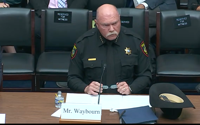(The Center Square) – NRG Energy, which has split its headquarters between Princeton, New Jersey, and Houston, Texas, is relocating its entire corporate operation to Houston, the company said.
NRG now joins 50 other Fortune 500 companies that have moved their headquarters to Texas, Gov. Greg Abbott notes, including 22 in the Houston area alone.
“America’s leading businesses continue to invest in Texas – and grow jobs in Texas – because of our welcoming business climate, low taxes, reasonable regulations, and our young, growing, and skilled workforce,” Abbott said. He thanked NRG Energy for designating Texas as its corporate headquarters.
NRG’s move to Houston comes after extensive talks with Houston Democratic Mayor Sylvester Turner, who announced more than a year ago that the city was committed to purchase 100% renewable energy through a renewed partnership with NRG.
Turner says the renewable energy plan will save Houston more than $9 million on electricity and reduce carbon emissions.
"The corporate decision provides stability for the company’s 3,000 employees currently living in Houston,” Turner said in a statement. “It means that NRG has committed to being a Texas-based company that will continue to expand."
But critics argue that Houston, known as the oil and gas capital of Texas and the nation, would be transformed into another failed renewable energy city, since reliance on renewable energy played a role in the extensive power failure Texas experienced during sub-zero temperatures in February.
If Texas had relied 100% on renewable energy in February, its power failure would have lasted far longer than it did, Texas Railroad commissioners and analysts at the Texas Public Policy Foundation maintain.
“Wind and solar can’t be counted on to provide enough electricity when needed most because their output varies with the weather, not with demand,” Brent Bennett, an energy policy director at the Texas Public Policy Foundation, said. And the unfair advantage given to renewable companies has hampered a reliable energy program, he added.
“Decades of multibillion-dollar subsidies for wind and solar, including federal subsidies that are often 50 percent more of wholesale electricity prices,” give renewable companies an artificial advantage, making it nearly impossible for reliable power plants to remain economically competitive in an energy-only market, Bennett said. As a result, companies prematurely retired more than 5,000 MW in natural gas and clean coal prior to the February freeze occurring.
Renewables also receive a hidden subsidy, Bennett said, which results in not fully bearing the intermittency costs they impose on the rest of the grid.
“If unreliable capacity is subsidized and reliable capacity penalized, the result is an over-investment in unreliable capacity and under-investment in the capacity most needed to keep the lights on,” which Bennett said, “describes Texas to a tee. Add to that the way in which Texas has socialized the additional cost of transmission for wind and solar, and you have a market far out of balance.”
In February, Turner became chairman of Climate Mayors of America, whose stated goal is to replace the oil and gas industry with “a clean energy future.”
In February 2020, Turner launched Resilient Houston. He launched a climate action plan in April 2020 to transition “the Energy Capital of the World to a clean energy future.” Critics worry that none of these plans show how nearly one third of the nation’s jobs in the oil and gas industry located in Houston would be replaced by clean, green energy jobs.









